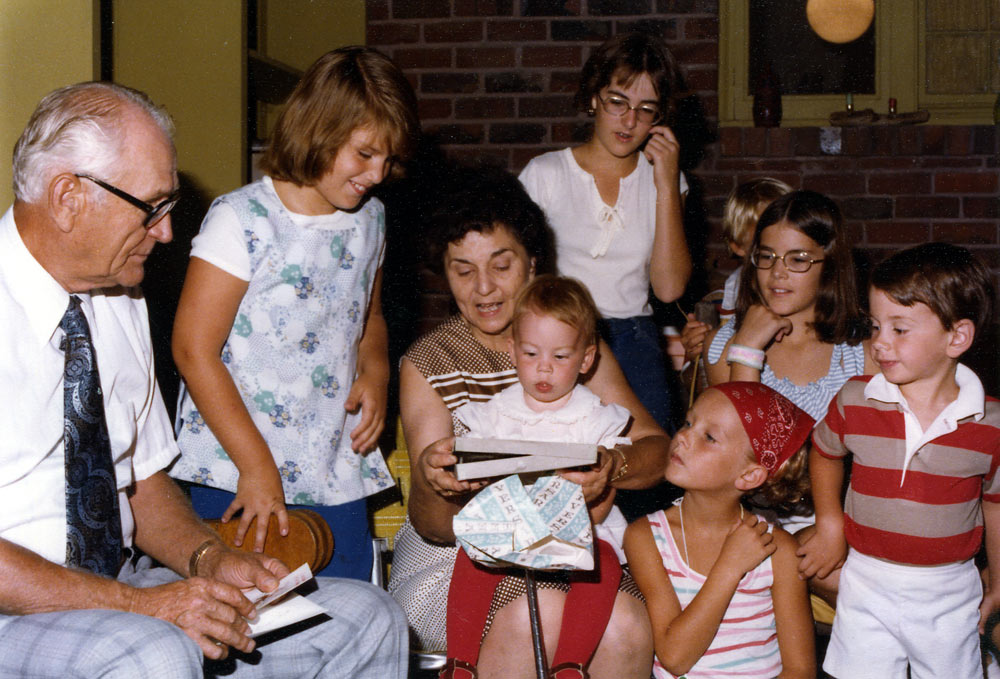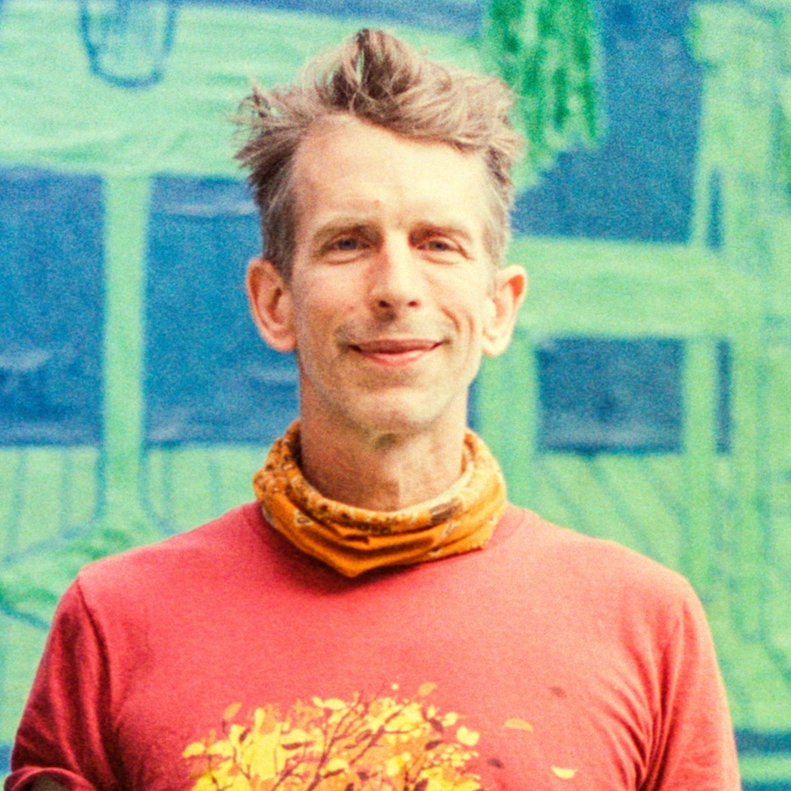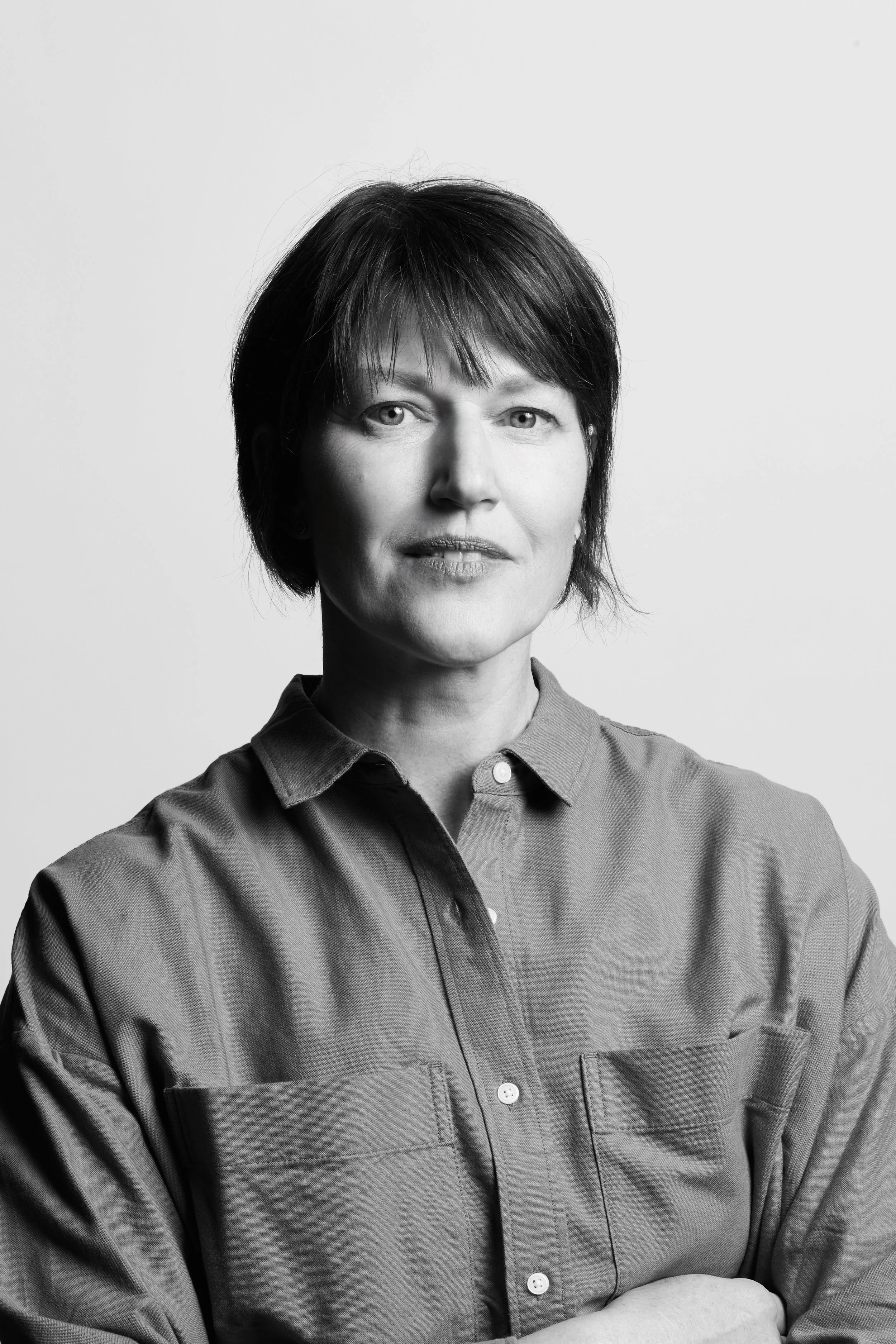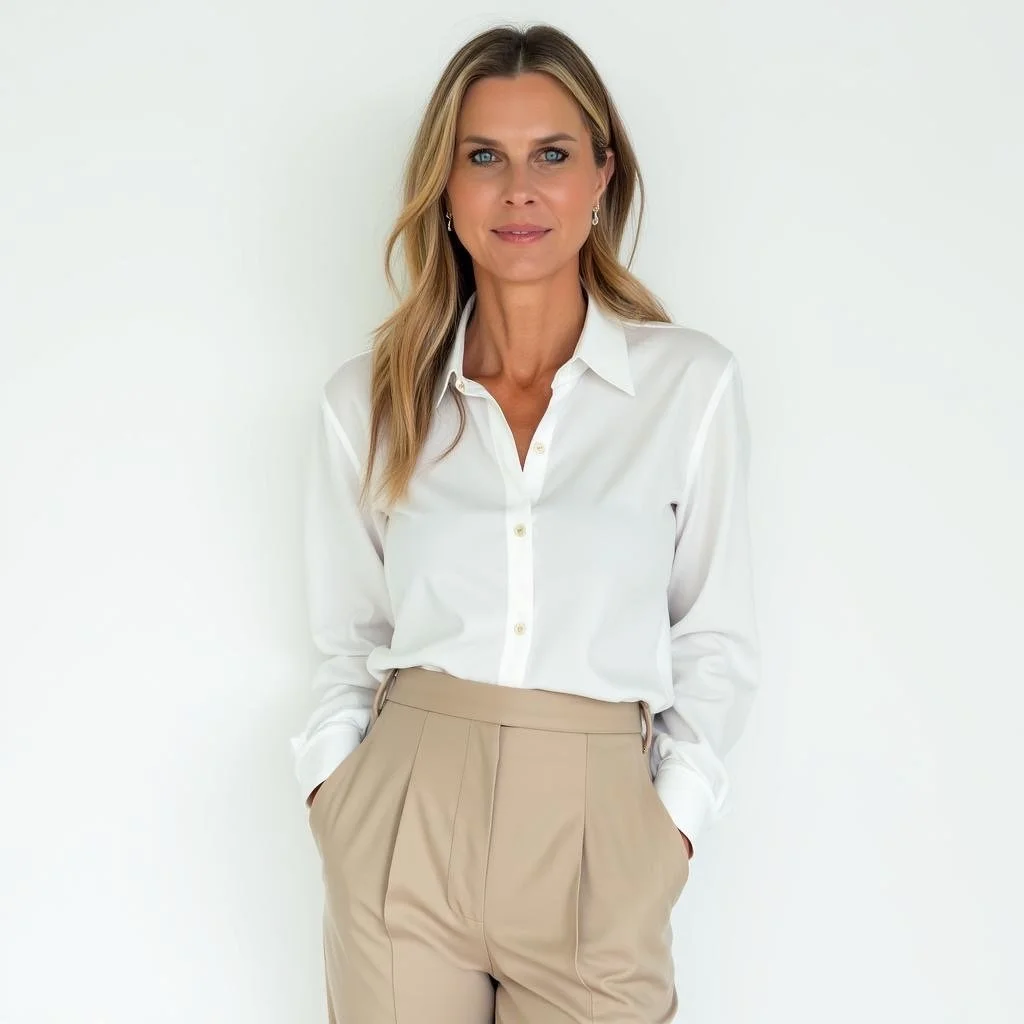Ep. 31: Leslie Witt
Architect, digital designer, and design thinker extraordinaire, Leslie Witt, moved around a lot as a youth, which made her very adaptable, but sometimes resulted in fashion mishaps as a teenager. She grew up excelling at almost everything and therefore some of her toughest struggles didn’t arrive until adulthood. She breaks down those challenges with wit and wisdom and charms us with her optimism, humility and problem-solving prowess. Also, she explains techy stuff to us in a way that we can understand.
What is your earliest memory?
I was maybe 3, in the basement of our Minnesota home, playing some tunes on my plastic record player. It was one of those rooms with the high up windows. Something caught my attention and I looked up - just in time to see a gorilla peering in the window. It wasn’t alarming, more like sheer delight. This is one of my most vivid visual snapshots from childhood. It wasn’t until high school, while relaying this remarkable moment to a friend, that I started to challenge its veracity…My tendency toward ‘creative’ storytelling revealed itself early.
How do you feel about democratic design?
It depends what form of democracy. If you’re talking direct - as in popular vote wins and the community provides the answer - I’m not a fan. In design, it tends to lead to perpetuation of norm - lukewarm expression, lowest common denominator outcomes. But, if we’re talking about representative - as in the ‘elected’ designers have a responsibility to listen to and respond to those they serve - absolutely! I’ve experienced the power of participation and listening in not only galvanizing interest of the eventual audience, but in providing direction-changing and intuition-busting insight to the designer.
Leslie in her drum major uniform, playing a trumpet solo.
Leslie with her family. "Anyone who knows my family, knows that my kids are always in costume. Here they’e mugging it up as Wonder Woman and Plex."
What’s the best advice that you’ve ever gotten?
Only you can establish and maintain your boundaries.
I asked a trusted, more experienced cohort for advice when I was coming back to work from maternity leave five years ago. This invitation to set my rules of engagement really stood out, especially as it was provided by one of the male partners at the firm - a gent I’d worked with for almost a decade and never realized left the office every day at 4 pm to spend time with his son. He let me know that I could do that - or whatever worked for me - but, that only I was going to provide the guardrails that governed how my work and life would commingle and connect. Work would use every minute I gave it, so would family. The only decider, the norms-establisher, was me.
Leslie's work: "I had the pleasure of working with Carlos Jimenez during my years as practicing architecture. This is an image of the Irwin Mortgage building, one of the primary projects I worked on and a structure that made Phaidon’s Atlas of Contemporary Architecture."
"My graduate thesis was done with Paul Lewis as advisor. My focus was overhauling America’s aging suburban neighborhoods to allow the elderly to age in place. This image is of one of the infrastructure additions I proposed - medical gas distribution ‘domesticated’ and ‘aestheticized’ through fabric and pattern."
How do you record your ideas?
Notebook. Pen and paper still does wonders for me in freeing creativity and thought. Currently glamming it up with an overscaled baroque gilded Christian Lacroix affair. It’s loud and proud.
What’s your current favorite tool or material to work with?
Plants. Most everything I craft these days is growing. I was bit by the vertical gardening bug about 5 years ago, and I’m still there - tillandsias, succulents, orchids abound. You’ll find me with my spade, garden shears and misters pretty much every weekend.
Leslie loves gardening: "I go crazy for tomatoes - have found that 18 heirloom varietals is my ideal. Here’s a rainbow yield from one day last summer".
What book is on your nightstand? (alt: What’s the best book you’ve read this past year?)
Top Dog, the Science of Winning and Losing. Since becoming a parent I’ve both read less - sad, but true - and found these pop-psychology books to be endlessly fascinating tools for understanding my children. This one has some very fun insights on competitiveness and brain chemistry, as well as gender norms, both cultural and biological. But if you want to know what I most recently consumed, that would be my current podcast obsession, after over a decade of This American Life fandom, I fell in love with Malcolm Gladwell’s Revisionist History. Episode 1: the Lady Vanishes is a must listen.
Some of Leslie's work at Intuit on the Quickbooks self-employed mobile app, which aims to serve the financial needs of the quickest growing group in the global economy, the self-employed and freelancers. "A lightweight way for self-employed to stay abreast of the taxes they owe, and know - for real - what it is they’re making. When it’s time for taxes, the services directly connects to Turbo Tax, for US customers."
Some of Leslie's work at Intuit on the Quickbooks self-employed mobile app, which aims to serve the financial needs of the quickest growing group in the global economy, the self-employed and freelancers. "Two different functions on view - transaction details and mileage tracking. Using geotagging the service automatically logs trips, all our customers need to is indicate business or personal."
Why is authenticity in design important?
It’s the only thing that’s enduring. Like quality, we all intuitively know when it’s there or not.
Favorite restaurant in your city?
Flea Street Cafe. California cuisine at its unpretentious best, plus awesome cocktails.
What might we find on your desk right now?
The standard affair - coffee cups, several. Pictures of my kids. A bunch of papers I’m pretending to save, but will eventually head to recycling. A scattered array of dongles. A gorgeous ‘Space Gray’ 13” MacBook Pro.
Who do you look up to and why?
My mom. I refer to her as ‘Power Pollyanna’ - she’s endlessly positive, and packs a punch when it comes to translating that optimism into action.
I’ve watched her move to new towns - again and again - integrate into the fabric of the community with ease, grace and lightning speed. This superpower made it so much easier for my brother and I to embrace change, embrace people and see life as an ongoing communal adventure.
I’ve watched her pick up new skills - Carol wallpapers? She does now! She re-upholsters furniture? Why not?! - with confidence in her own perseverance and flexibility...and that ‘almost bravado’ is electrifying to those around her. She inspires them to try things they didn’t think they could do and brings certainty that you’ll get to great outcomes, or, if not, just have a damn good time trying!
Leslie's home letterpress shot. "It’s set up in our library, and we use the shelves to good measure for drying the run."
Leslie is one in this photo, surrounded by family at her grandparents home in rural Nebraska.
Leslie and her dad on a camping trip.
What’s your favorite project that you’ve done and why?
That’s really tough to pick. I’ll highlight one that changed me, permanently and for good.
It was two years into my decade at IDEO. I had turned into a passionate human-centered designer, however, one who still very much identified as an ‘architect’. I was selected to lead a project with one of the largest non-profit developers of public housing. They were a purpose-driven organization, looking to raise the game in the communities they developed - wanting public housing to fulfill its role of not only of providing safe haven to those most in need, but also acting as a launchpad to market stability and success.
I was passionate about public housing as an architecture student. So - perfect! We went community to community - Chicago; Louisville; Worcester, Mass - and spent time with the people we were aiming to better serve. And what I came away with was conviction that the tools of architecture alone - the hard-stuffs, the urbanity of a place - were radically insufficient to address our challenge.
Previously, that would have been crushing, but at this moment it was freeing. There was so much more we could do! It was the moment I stopped seeing myself as an ‘architect’, and started to see myself as a ‘designer’ in the broadest sense of the term.
We could harness the power of place as a platform - integrate attributes like investments and credit-building into the operational fabric of the community. We developed a toolkit called Ways and Means as a manual of best practices and tools for tenants to develop financial independence and stability. It levied immense design creativity to conjure very real ways for ‘place’ to help break the cycle of poverty.
It’s the project that had me fall in love with the potential of ‘designing for money’. It’s one of the reasons why I’m at Intuit and believe in the power of the services and tools we build for consumers, small businesses, and the self-employed to truly improve outcomes, to power prosperity around the globe.
Leslie talks about what her struggle to have children taught her about bringing new ideas to the world.
What are the last five songs you listened to?
- You’re Welcome, from Moana (the Rock can really sing!...and thank goodness, as I hear the album multiple times a day)
- Party in the USA, Miley Cyrus (my 5 year old daughter is a pop diva)
- Me and Julio down by the Schoolyard, Simon and Garfunkel (I’m a sucker for anything ‘sing along’)
- Chunky, Bruno Mars (he’s so good!)
- Hey Mambo, Rosemary Clooney (my ‘other’ 5 year old channels the old crooners)
Learn more about the work Leslie does at intuit.com.
Special thanks to Chris Modl of Yore Studio for editing this episode.
Music in this episode courtesy of El Ten Eleven—hear more on Bandcamp.
Shoutout to Jenny Rask for designing the Clever logo.
















